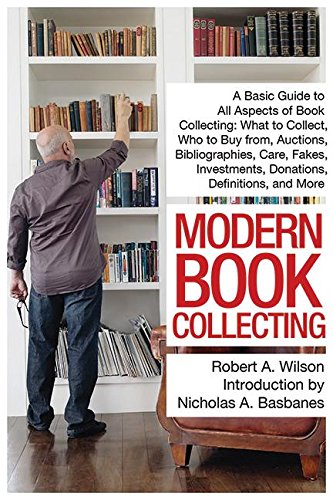The Dying Trade of Rare Book Dealers
Many people spend a good deal of their lives trying to figure out what they want to be when they grow up. Often landing jobs that pay the bills but don’t satisfy the soul, it's not uncommon for many to never find the ideal overlap between pursuing passions and getting a paycheck.
Luckily for Scott Emerson, he found his passion early. With over 40 years in the independent book trade under his belt, Emerson still loves what he does.
“I wasn’t much of a reader, but I just really loved the essence of books, the feel of the pages, the thrill of the hunt.”
While Emerson was mostly interested in comic books as a young teen, one day his father brought home a book of Norman Rockwell paintings and he was hooked. “I really loved Norman Rockwell or anything to do with Rockwell. I began spending my time looking for things to trade for Rockwell art, and in that process I came to learn more and more about antiquarian materials.”
Emerson’s hunt for Rockwell began at around age 16 and by the time he had graduated high school, he had become knowledgeable enough about trading to continue.
“I had a few little jobs here and there that I did not enjoy. I worked as a dishwasher for a little while...but the book scouting just kind of took off.”
Emerson’s days revolved around getting in his car and driving to swap meets, thrift stores, garage sales, and anywhere else he could find books to trade.
“In those days, there was no internet. So if you wanted to find a book, you had to go to where the book was. Everyone didn’t have access to everything like they do now.”
The absence of access to a global market in the time before the internet meant that to be a book dealer, lots of travel was required.
“I drove around the country hunting in bookstores. I was able to drive the whole United States and it didn’t cost me anything because I traded as I went. You could find some amazing things in bookstores back then. I made a good living wholesaling to bookstores.”
The good old fashioned mail service was also the bread and butter of book dealers before the internet. “There was a publication called AB Bookman’s Weekly that was published every week. Dealers and collectors from all over the world would get it and start making phone calls right away. If there was something you wanted, you had to be the first call in to order it. I also sold a lot of books that way, by taking out an ad in the publication. But there were no cell phones back then, so once your listings went up, you had to sit by the phone and take the orders. Sometimes I’d have my mom do that for me and she loved it,” Emerson says with a laugh.
Though rare book dealing used to be a thriving business, there is very little in the way of formal education for those eager to learn the trade. The majority of the knowledge needed is gained simply by doing, by being out in the field buying and trading.
(There are some rare book schools in existence, however. We’ve put together a list of 5 Rare Book Schools to learn the book trade, if you’re dreaming of a career in books.)
“It was very important to have a good reference library,” says Emerson, “it was how you researched the value of a book. It was all done with physical, compiled resources. If you didn’t have good reference materials of your own, public libraries were usually good to use. The San Diego public library was a great resource.”
After the rise of the internet made the information in those reference materials available with a few clicks, the resources themselves became virtually worthless. No one uses them and no one wants them. “At the beginning of my career, I read anything I could get about collecting and what was valuable. You really had to know what you were doing.”
Post internet, the everyday work of book selling has changed somewhat. It’s no longer necessary to travel long distances to find books, and plowing through dusty reference materials is not how the value of a book is researched. Emerson still runs his own business, but like the majority of modern day dealers, he runs it online.
While scouting is still a big part of the job, Emerson also lists books on Amazon, ABE Books, Biblio, and his own website, Scott Emerson Books. “Most young dealers now buy books worth about $5-$10 en masse and re-sale them on Amazon. You have to sell dozens and dozens of widely available, inexpensive things in order to make any money. It’s possible, but not as much fun. I just don’t think it’s possible anymore to make a living doing what I did back then.”
Emerson predicts that book dealing will continue to move more and more to online platforms in the future, and if indie bookstores want to stay open at all, they’ll have to have a massive inventory.
“Sometimes I think about having my own brick- and-mortar store, but if I did, it would have to be huge. Little stores of 10,000 books or so probably won’t make it. There’s not enough to draw people in.”
After a lifetime in books, when asked if he has any regrets, Emerson says, “Having my own store might have been fun. But you know what, it’s crazy that after 45 years I still love what I do. In this business it’s amazing what you learn about history, about people. It’s wonderful. There are no regrets.”









